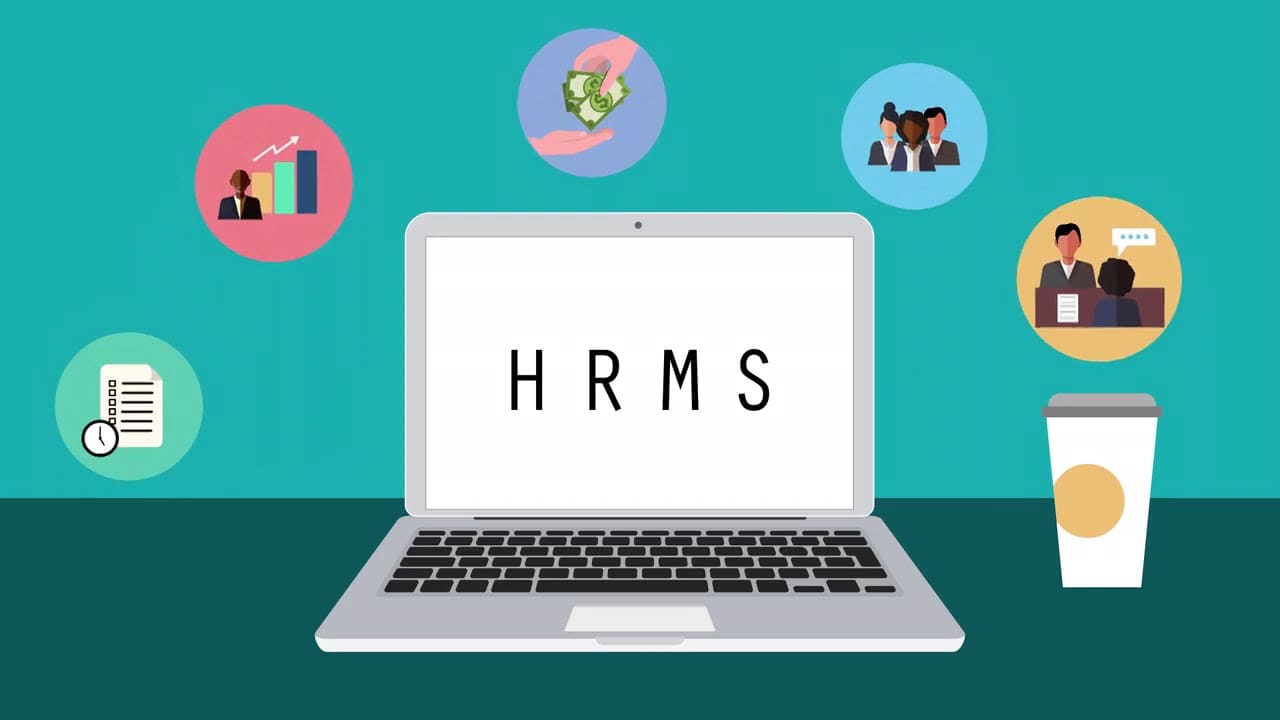Introduction:
In today’s fast-paced business environment, managing human resources efficiently is more critical than ever. Companies are increasingly turning to technology to streamline their HR processes, and HRMS (Human Resource Management System) companies are at the forefront of this transformation. These companies provide comprehensive solutions that integrate various HR functions into a single platform, helping businesses enhance efficiency, compliance, and employee satisfaction. In this article, we will explore the role of HRMS companies, the benefits they offer, and why they are becoming indispensable for modern businesses.
What are HRMS Companies?
HRMS companies specialize in developing and offering software solutions that automate and integrate multiple HR functions. These functions include payroll management, recruitment, performance evaluation, attendance tracking, benefits administration, and more. By providing a centralized platform, HRMS companies enable businesses to manage their workforce more effectively, reduce administrative burdens, and ensure compliance with labour laws.
The Benefits of Partnering with HRMS Companies:
1. Streamlined HR Processes
HRMS companies offer tools that automate repetitive and time-consuming HR tasks. From payroll processing to leave management, these solutions help businesses streamline their operations, allowing HR professionals to focus on more strategic activities. Automation reduces the risk of errors and ensures that processes are completed efficiently.
2. Enhanced Compliance
Compliance with labour laws and regulations is a significant challenge for businesses. HRMS companies provide solutions that ensure adherence to legal requirements, such as tax calculations, benefits administration, and reporting. By automating compliance-related tasks, HRMS companies help businesses avoid legal issues and financial penalties.
3. Improved Data Accuracy
Manual data entry is prone to errors, which can lead to significant issues in HR management. HRMS companies offer solutions that automate data entry and ensure accuracy. This not only reduces the risk of errors but also ensures that employee information is up-to-date and reliable, leading to better decision-making.
4. Cost Savings
By automating HR processes, HRMS companies help businesses reduce administrative costs. The need for manual intervention is minimized, which saves time and resources. Additionally, these solutions often identify areas where costs can be further reduced, such as overtime management and benefits administration.
5. Employee Self-Service
Modern HRMS solutions include employee self-service portals that allow employees to manage their personal information, view payslips, apply for leave, and update benefits preferences. This self-service functionality enhances the employee experience by providing transparency and reducing the administrative burden on HR teams.
6. Comprehensive Reporting and Analytics
HRMS companies offer powerful reporting and analytics features that provide valuable insights into various aspects of HR management. Businesses can generate reports on employee performance, turnover rates, payroll costs, and more. These insights enable informed decision-making and strategic planning.
Key Features of HRMS Solutions:
1. Integration Capabilities
A robust HRMS should offer seamless integration with other business systems, such as accounting software and ERP systems. This ensures that data flows smoothly between departments and reduces the risk of errors associated with manual data entry.
2. User-Friendly Interface
An intuitive and user-friendly interface is crucial for ensuring that HRMS solutions are easily adopted by both HR professionals and employees. The platform should be straightforward to navigate and require minimal training.
3. Scalability
As businesses grow, their HR needs evolve. Leading HRMS companies provide scalable solutions that can accommodate increasing numbers of employees and expanding HR functions. Scalability ensures that the system continues to meet the organisation’s needs as it evolves.
4. Security and Compliance
Data security is a top priority for HRMS companies. Their solutions should include robust security features to protect sensitive employee information. Additionally, the software should comply with data protection regulations, such as GDPR, to ensure that personal data is handled securely.
Choosing the Right HRMS Company:
1. Reputation and Experience
The success of implementing an HRMS depends largely on the vendor’s reputation and experience. Businesses should conduct thorough research, evaluate the provider’s track record, and seek references from other clients. Partnering with a reputable and experienced HRMS company increases the likelihood of a successful implementation.
2. Customization Options
Every business has unique HR requirements. It’s essential to choose an HRMS company that offers customization options to tailor the system to specific needs. This ensures that the platform aligns with the organisation’s processes and enhances overall efficiency.
3. Implementation and Support
Implementing a new HRMS can be complex. Choose an HRMS company that provides comprehensive implementation support, including training and onboarding. Additionally, ensure that ongoing customer support is available to address any issues that may arise.
4. Cost-Benefit Analysis
While HRMS solutions can lead to cost savings, it’s important to evaluate the cost-benefit ratio carefully. Compare the costs of implementing and maintaining the system with the potential savings and benefits. Consider both direct and indirect benefits, such as improved compliance, reduced risk, and enhanced employee experience.
The Future of HRMS Companies:
The role of HRMS companies is becoming increasingly significant as businesses recognize the value of automating and integrating HR functions. As technology advances, these companies are continuously innovating to offer more advanced features, such as AI-driven analytics, predictive modelling, and enhanced employee engagement tools. The future of HR management lies in leveraging these technological advancements to create more efficient, compliant, and employee-friendly workplaces.
Conclusion:
HRMS companies play a crucial role in transforming HR management by providing comprehensive solutions that integrate various HR functions into a single, efficient platform. The benefits of streamlined processes, enhanced compliance, improved data accuracy, cost savings, and comprehensive reporting make partnering with HRMS companies an invaluable asset for modern organizations.
